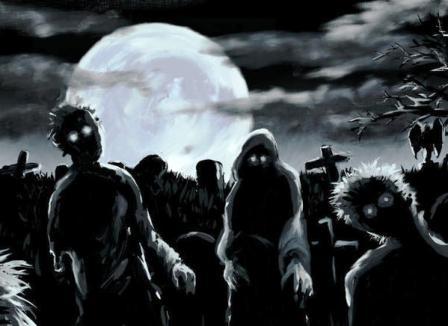 At work in the Collect for the 13th Sunday of Ordinary Time are themes of divine adoption and the splendor of truth.
At work in the Collect for the 13th Sunday of Ordinary Time are themes of divine adoption and the splendor of truth.
Our prayer connects being wrapped up in error with separation from God. It joins divine adoption with coming into view in the light of Truth.
Deus, qui, per adoptionem gratiae, lucis nos esse filios voluisti, praesta, quaesumus, ut errorum non involvamur tenebris, sed in splendore veritatis semper maneamus conspicui.
Involvo involves “to wrap up, envelop” and “to cover, overwhelm, surround.” Conspicuus (as opposed to occultus) is an adjective for something in view or that comes into view. Thus, it is “that which attracts the attention to itself, striking, illustrious, remarkable”. Splendor is, “sheen, brightness, brilliance, luster” and moreover, “dignity, excellence.”
LITERAL VERSION:
O God, who wanted us to be children of the light through the adoption of grace, grant, we beg, that we not be bound up in the shadows of errors, but rather that we remain always striking in the splendor of the truth.
CURRENT ICEL (2012):
O God, who through the grace of adoption chose us to be children of light, grant, we pray, that we may not be wrapped in the darkness of error but always be seen to stand in the bright light of truth.
During Mass keep your ears pricked up, ready to pick up Biblical references in the prayers. A theme of this Collect is our identity as children of God through adoptio gratiae, adoption of grace. St. Paul writes often about spiritual adoption (e.g., Gal 4:5 and Eph 1:15, et al.). Writing to the Romans he tells us about the moral implications of spiritual sonship. Why not spend a half hour or so reading and thinking about Romans 8:1-15 and (under the usual conditions) gain a partial indulgence?
The phrase splendor veritatis should ring a bell. The late Pope John Paul II in his 1993 encyclical Veritatis splendor began to correct the erroneous and dangerous tendencies of some contemporary moral theologians. Progress has been made.
Splendor, in the writings of some Fathers of the Church is, like gloria and maiestas, associated with the divine presence. Think of the pillar of fire during the Exodus, the shining cloud wherein God spoke to Moses, the light of the transfigured Lord on Mount Tabor. The Doctor of Grace, St Augustine of Hippo (+430), twice connected “splendor of truth” (splendor veritatis) with “fervor of charity” (fervor caritatis). Centuries later the Seraphic Doctor, St Bonaventure of Bagnoregio (+1274) expanded upon this link. For Augustine and Bonaventure, living in the light of the truth, which is the love of God, necessarily means also love of neighbor. With what kind of love must we hold our neighbor? With fervor, “a boiling or raging heat”. This is no lukewarm love which Jesus will spew away.
Splendor veritatis leads to fervor caritatis, the blazing raging fire of Jesus’ Sacred Heart, His lacerated “burning furnace of love”.
Christians cannot love God and not love neighbor. In word and deed we must reflect this two-fold love or we are not true Christians. I often fail in this.
The splendor of Truth brings us into the light, teaches us love, and sets us free. Error binds us, prevents us from acting as free persons.
In the light of day we walk about freely, without hurting ourselves or getting lost. In darkness we grope, stumble, and run against unseen obstacles.
Today’s Collect presents “shadows of errors” as a smothering envelopment hiding God from our sight and us from His sight as if we were in a dark forgotten tomb, buried alive.
The wounds of Original Sin make it difficult to know what is good and right and true. Our intellects are clouded. When through in the tangle of our minds or the help of human or divine authority we discern the good, then we still need to choose it with our wounded will. We can convince ourselves that actions which are in reality bad, wrong and false are actually good, right and true. We fool ourselves into thinking we are “free” and acting rightly when we actually are doing things that are quite wicked. If this becomes habitual, we become numb to truth and to error and to sin.
Once we are enveloped in error’s darkness, which begins in self-deception, ever after we lurch through life like horror movie zombies, grotesque mockeries of what God intended for His holy images.
God makes it possible to put off the darkness and put on the light (Rom 13:12-14). He flashes, shines, dispels our blindness (cf Augustine, Confessions 10,27).
By the merits of Christ’s Sacrifice and through His sacraments and Holy Church’s teaching we can be the free beautiful images God wants us to be in this life and in the life to come.

































